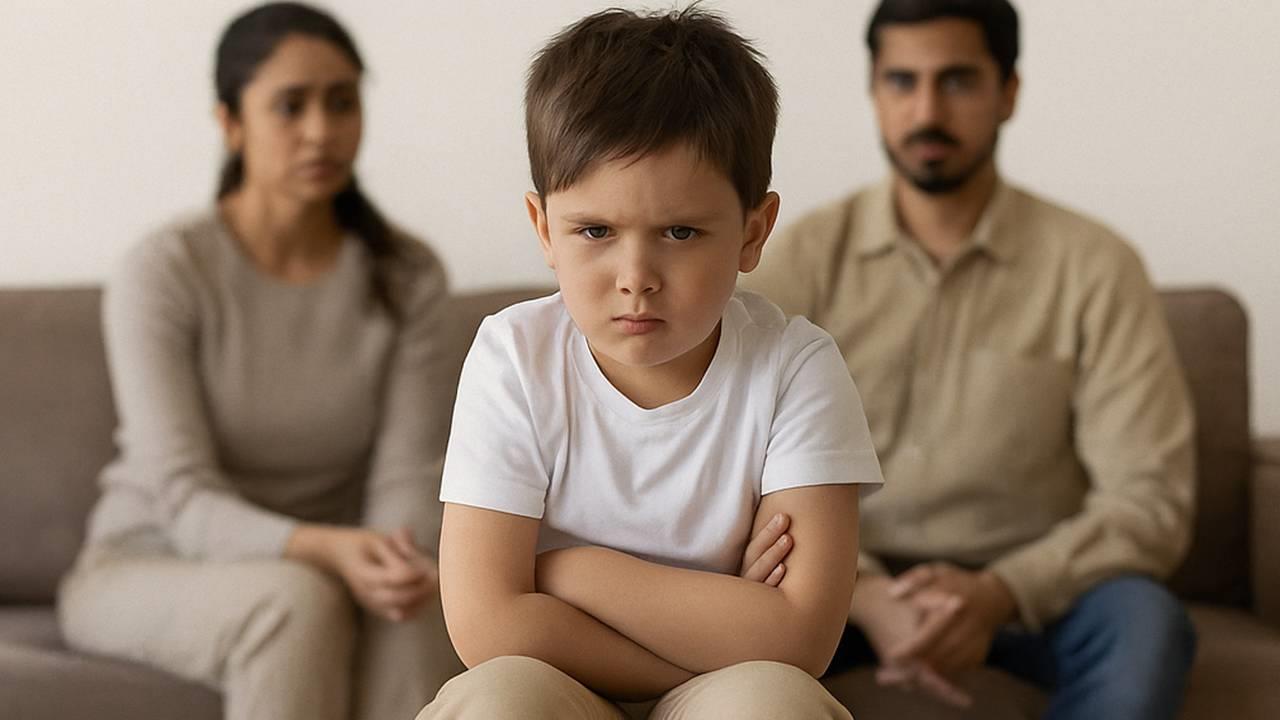
Parenting Guide: How To Help Your Child Calm Down During Angry Moments
Learn how to calm your angry child with simple, effective tips that promote patience, empathy, and understanding, helping you build a stronger emotional connection and reduce stressful moments together.
Parents often see children's anger as a negative thing. But a child's anger is not just anger. It's an expression of their feelings. Every child expresses their anger in different ways. Some children express their anger by shouting, while others express it by hurting themselves. In this post, we will see what to do to calm down angry children.
Ignoring a child's anger is not the right solution. This will give the child the understanding that expressing their feelings is not safe. When children are angry, you need to make them understand that you understand that their anger is an expression of their sadness or frustration. You have to acknowledge their anger. This will make children feel that their feelings are valued.
Parents should understand that a child spending too much time alone increases their stress hormones. This delays their emotional regulation. Spend enough time with them. When loneliness disappears, their hurt minds will heal and their anger will decrease.
Children will keep their favorite things as comfort, such as toys, pillows, soft blankets, storybooks, etc., in a way that expresses their feelings. These will be a drain on their anger. If they get angry, they can get used to reading a story, sleeping, drawing, or doing another favorite thing.
When children get angry, parents should not shout or scold them, but talk to them after their anger subsides. After mentioning their positive things, they should be made to understand what kind of negative effects anger can cause.
Before trying to calm an angry child, parents should take care of themselves. Keep the body relaxed, not tense. Speak in a soft voice with a slight smile on your face. Take a deep breath before speaking. Then talk to them.
When children get angry, they will reflect it in their body language, tone, and feelings. At that time, it should be approached with sympathy. If your child sits down and screams, ask in a calm voice, "Are you sitting properly? Does your leg hurt?" They will notice it. This way they will know that you are paying attention to them. They will answer you. You can talk like that and reduce their anger.
Tell your child to express anger emotionally. You can ask them to write or draw on paper. Ask them to specify how angry they are. Tell them to express how angry they are as a dinosaur or a bear. Try to understand it.
Legal Disclaimer:
MENAFN provides the
information “as is” without warranty of any kind. We do not accept
any responsibility or liability for the accuracy, content, images,
videos, licenses, completeness, legality, or reliability of the information
contained in this article. If you have any complaints or copyright
issues related to this article, kindly contact the provider above.


















Comments
No comment